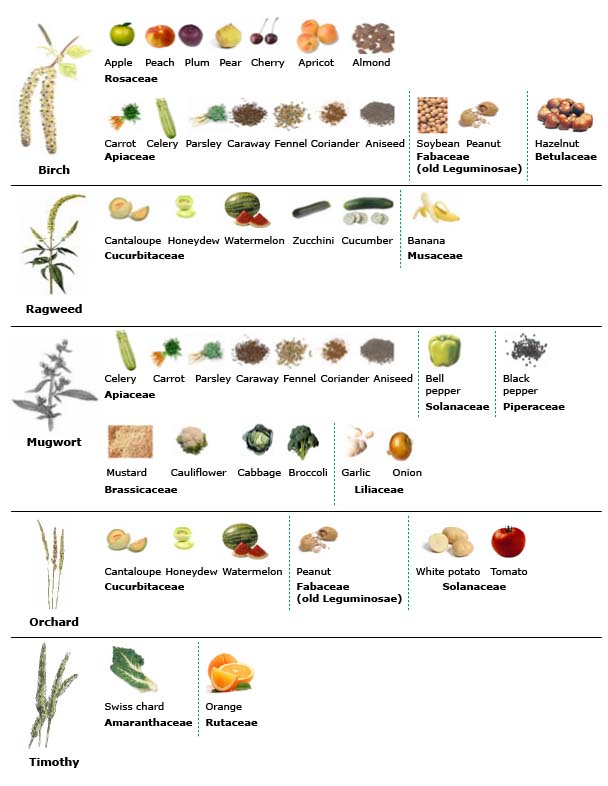
I have patients come in complaining about burning lips, tingling throat, sneezing attack after one bite of peaches, mango, kiwi, and nuts like almonds. This is the allergy category called “Oral Allergy Syndrome” (OAS) or “Pollen-Food Syndrome”.
It usually occurs in people who are allergic to “POLLEN” from certain trees, grasses or weeds. It has been shown that pollens from trees, grasses, and weeds contain proteins of similar structure to those present in many different fruits, vegetables, nuts, and even spices. These proteins, which have essential roles in plant growth and defense against disease, are recognized by the immune system of a hay fever sufferer and can trigger an allergic reaction in a susceptible person (ref: Allergy UK.org).
If you have an allergy to Ragweed which hit us in September in the Boston area, you may stay away from using “Stevia”. Many people experience sensitivity upon consuming stevia-sweetened products like yogurt.
Birch pollen is one of the big ones I have seen in this area (MA).
Rosaceae (Rose) Family of foods includes: apples, pears, almonds, peaches, apricots, plums, cherries, strawberries, blackberries, raspberries, nectarine, quinces, medlars, and loquats.
Here are useful articles to learn about OAS:
- Oral Allergy Syndrome
- What is Pollen-Food Syndrome?
- Allergic Living
- UpToDate: Oral Allergy Syndrome
- Food Sensitivities (IgG)
Food-Pollen Syndrome – Dysfunctional When you eat the certain foods, your immune system overreact to the protein of the foods is similar to the pollen in the spring and the fall. Please read this article. This is the immediate IgE reaction. Some people start vomiting and loose stool for a few weeks. You may make an appointment with the local allergist to test your IgE level.